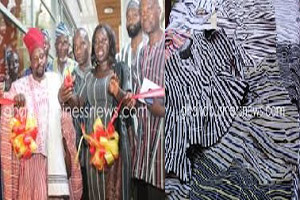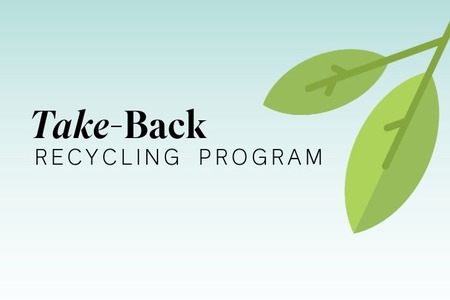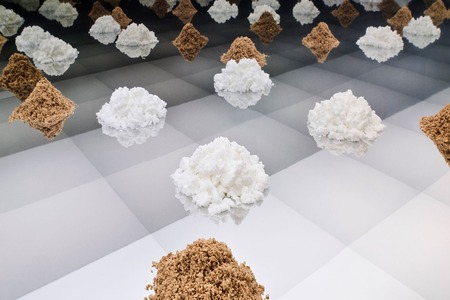
Batakari Friday, initiative launched to boost the patronage of locally-made clothing
YarnsandFibers News Bureau 2015-09-06 14:00:00 – GhanaThe Ministry of Trade and Industry, in collaboration with the Savannah Accelerated Development Authority (SADA) and the World Bank on Friday launched the awaited Batakari Friday policy: the latest initiative of government to boost the patronage of locally-made clothing. Like the Friday wear initiative, Batakari Friday hopes to have Ghanaians wearing Batakari on the first Friday of every month.
The policy was launched by Mrs Elizabeth Ofosu-Agyare, the Minister for Tourism, Culture and Creative Arts at the opening of the Grass is Greener Exhibition: a month-long exhibition by the World Bank and the Savannah Accelerated Development Authority (SADA) to showcase the sights and sounds and the economic potential of Ghana’s savannah region.
The smock, a popular identification for people of northern extraction, is also worn by many Ghanaians on both formal and informal occasions and has great appeal for men, although there are also smocks for women and children.
Ghana’s first President, Kwame Nkrumah, wore the ‘batakari’ when he declared the independence of Ghana on March 6, 1957.
Its appeal has, however, been undermined by its expensive price, which has made the attire the preserve of only a few middle and high-income earners.
The ‘batakari’ programme is a welcome move, which is believed change the fortunes of those engaged in producing the fabric and the attire. This will happen if the programme is able to make the smock accessible to more Ghanaians.
The ‘batakari’ trade provides incomes and employment for many people in the value chain. They include cotton spinners and yarn weavers, tailors and retailers and it also has a huge potential for the fashion and decor industries.
Harnessing all the potential at a go would require improvement of Ghana’s cotton industry and assistance to cotton farmers through the introduction of improved seeds, varieties and inputs to encourage large-scale mechanised farming.
That would invariably bring about increased revenue to the farmers, attract more farmers into cotton farming, offer employment to the hordes of idling youth and bring about a decline in migration of the youth to the city centres for menial jobs.
But they need to tackle the popularity of the smock from the primary stage of producing the needed raw material, which is cotton, before anything else, otherwise after they have attracted a large following for the attire there would not be enough to go round, while the economies of scale would make the price so prohibitive that it would rather drive away prospective patrons.
There is also need to look at the larger picture of making the wearing of their own attire and fabrics an everyday affair, instead of the Friday wear that has been championed in the past few years.
This will revive the dying local textiles industry, including the indigenous fabrics and attire of all ethnic groups in the country.
Market Intelligence
Ask for free sample Report

experience
Customer Base
dedicated team
Countries Served Worldwide









